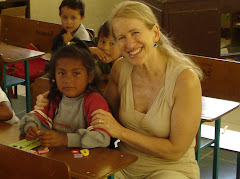Throughout my career, it has often been difficult, at some crucial times, to remain silent. There were moments when events around me were so intense that I found it unbearable to just be there and watch, and remain silent. I thus took the risk and spoke out.
The other day, as I read a short note by the UN Spokesperson, on behalf of Mr. Ban Ki-moon, exhorting the parties in
And where is the UN? My dear UN which I had served for 30 years, in which I believe and which flag gives me the chills and the hopes, every single time. The UN with its ultimate goal to protect human beings? Yes, TO PROTECT. And the word just came in my mind as a revelation.
Again, what about the people?
I immediately went to my computer and sent a note to the UN Spokesperson. The Un Secretary General is the maximum authority in the world, the only one who has the right, the mandate, the obligation to look after the well being of all people, independently of their race, religion, age, gender, nationality. The SG has such a tremendous power, and can be such a wonderful world leader; he is the voice of ALL human beings and has the mandate to provide them an unconditional protection.
What does it entail?
It is true that the UN is but the reflection of all its constituency – the countries, i.e. their leaders – and is bound to seeking consensus. However, the SG is empowered by all the UN member states and as such, he should stand firm in front of the world politicians, and remind them over and over again about their responsibility. The SG is the spokesperson of the world’s human beings. This is what has been delegated to him. Human beings should be the center of the UN language and actions. The SG has to talk to the people of the world, remind them of their basic human rights while at the same time empowering them to demand accountability from their leaders. In public statements, the SG should for instance say:” I exhort you leaders to show moderation… The people of your country deserve to live in peace and harmony, we therefore urge you to….in order to ensure the well-being of the people for which you are fully responsible.”
Such language, followed by clear actions, will transform the UN and bring it closer to being able to fulfill its mandate, its ultimate goal, to protect human beings.
And last, but not least, a few days ago Lee Feinstein of the Council on Foreign Relations wrote in the Washington Post on the UN Reform: “The most important "reform" Ban Ki-moon can undertake is to convert these three inspiring words, "responsibility to protect," into a programme of action… The long-term goal is to avoid the stark options of "Doing Nothing" and "Sending in the Marines." That requires establishing a pattern of early and effective international response at the first signs of concern. The place to start is with concrete steps to build capacity -- diplomatic, economic, legal, and military -- in support of the principle of humanitarian protection. Universal adoption of the responsibility to protect has begun to remove the classical excuses for doing nothing in the face of mass atrocities. What is needed now is the capacity and political will to back it up”.
Now please, go back to my introduction….

